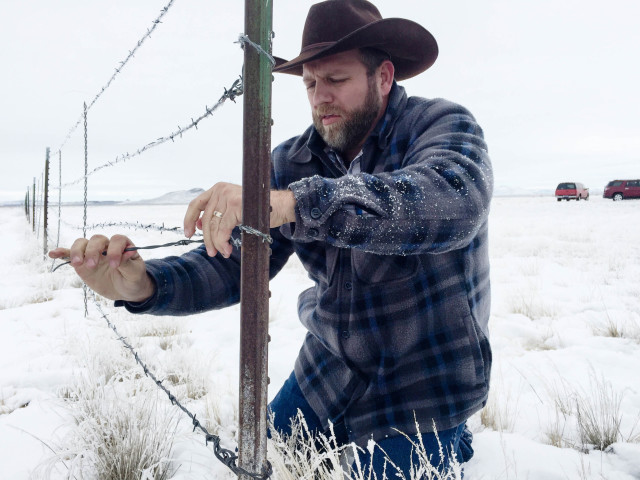Thursday
Ursula LeGuin, the fantasy and science fiction writer, surfaced earlier this week with a letter to the Oregonian complaining about its account of the rightwing militants occupying the Malheur National Wildlife Refuge. The sentiments expressed reminded me of LeGuin’s great utopian novel The Dispossessed (1974).
LeGuin took issue with Oregonian’s front-page headline and article about the group:
The Oregonian’s A1 headline on Sunday, Jan. 17, “Effort to free federal lands,” is inaccurate and irresponsible. The article that follows it is a mere mouthpiece for the scofflaws illegally occupying public buildings and land, repeating their lies and distortions of history and law.
Ammon Bundy and his bullyboys aren’t trying to free federal lands, but to hold them hostage. I can’t go to the Malheur refuge now, though as a citizen of the United States, I own it and have the freedom of it. That’s what public land is: land that belongs to the public — me, you, every law-abiding American. The people it doesn’t belong to and who don’t belong there are those who grabbed it by force of arms, flaunting their contempt for the local citizens.
LeGuin goes on to explain that, when land is owned publicly, it becomes a site where compromises can be arrived at for the benefit of all:
Those citizens of Harney County have carefully hammered out agreements to manage the refuge in the best interest of landowners, scientists, visitors, tourists, livestock and wildlife. They’re suffering more every day, economically and otherwise, from this invasion by outsiders.
The suffering includes (this according to a local judge) expenses costing local tax payers $60-$75,000 a day, as well as disruptions to their daily lives. The militants have also been destroying federal fencing around the refuge.
LeGuin’s views are elaborated in The Dispossessed, which is about a group of anarchists who have left the mother planet Urras and colonized its moon Anarres. The anarchists, or Odonians, set up a society operated according to strict communal principles. Everything is owned jointly and everyone, from the most brilliant scientist (the protagonist Shevek) to the simplest manual worker, has obligations to keep the place running (take out the garbage, undertake emergency farming, etc.). No one receives special privileges.
Urras is wealthier and greener, and A Io, the country that Shevek visits, practices a form of somewhat enlightened capitalism—which is to say, it has learned important lessons from our own Earth. In Earth’s case, the forces of greed have run unchecked, and companies out to make a buck have turned it into a wasteland. But even though A Io has escaped ecological catastrophes—LeGuin would undoubtedly mention climate change if she were writing the novel today—it still suffers from great income inequality, suppressing marginal groups and undeveloped nations. It also wants to use Shevek’s scientific breakthroughs to manufacture profitable technologies and nationalistic enterprises.
The vision that emerges from The Dispossessed is the one that informs LeGuin’s letter. She is sympathetic to the Odonian view that all land should be communally owned and that we should do away with private property. She is aware that, as soon as one group seizes land, it impoverishes others. But she also acknowledges that no group is perfect and that Odonians have their own blindnesses. No one has all the answers.
Shevek’s scientific breakthroughs will make possible instant communication across vast distances. As LeGuin sees it, communication is necessary if fences are to come down. A-Io sets up fences and so, it turns out, do the anarchists, who are suspicious of people who think differently than they do.
Today we would say that the different groups are occupying their own informational silos. Shevek is ultimately willing to sacrifice himself to open up communication.
That’s what LeGuin is advocating with regard to the federal lands—different groups must come together to figure out what is best for all. I would imagine that she would tell us not to be deceived by the rightwing militants tearing down the fences. They will rebuild those fences once they themselves own the land. A truly healthy society, on the other hand, talks across differences.
But it’s not easy to do so, as we know only too well. LeGuin’s novel ends with the future in doubt.


